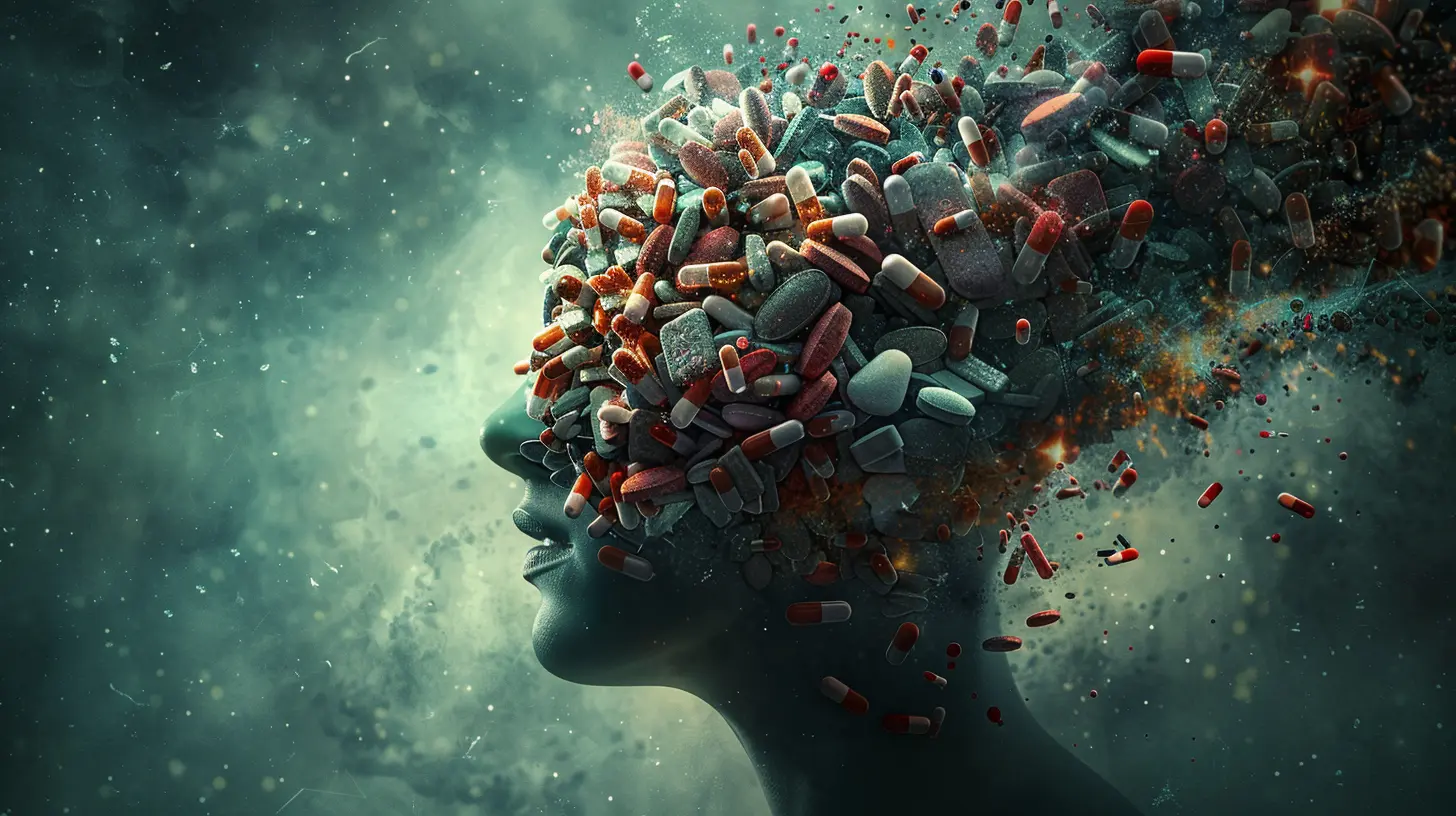Understanding the Addictive Personality Myth
18 July 2025
When someone struggles with addiction, what's the first thing people often say? “Oh, they must have an addictive personality.” Sounds neat and tidy, right? Like if we could just pinpoint a certain "type" of person, we’d understand addiction better. But here's the truth: the idea of an "addictive personality" is mostly a myth. Yep, a myth that oversimplifies a complex issue—and can even be harmful.
So let's dive into this misconception, pull it apart piece by piece, and really understand where it comes from and why it doesn’t hold up.

What Do People Mean by “Addictive Personality”?
The term “addictive personality” gets thrown around a lot. People use it to describe someone who seems more likely to become addicted to substances, habits, or even behaviors like shopping or gaming. Maybe it’s that friend who jumps from one obsession to another, or the cousin who can’t just have one drink without going overboard.But here's the kicker—there’s no official diagnosis or psychological category that defines an addictive personality. It's not in the DSM-5 (the go-to manual for mental health professionals), and it’s not something you can measure with a blood test or brain scan.
So what are we really talking about when we use the term? Usually, it's a mix of personality traits like:
- Impulsiveness
- Sensation-seeking
- Risk-taking
- Difficulty with coping or stress
- Low self-esteem
Sure, some of these traits might show up more often in people who deal with addiction—but having them doesn’t guarantee addiction. Nor does lacking them make someone immune.

Why Labeling Is Dangerous
Saying someone has an “addictive personality” creates a kind of self-fulfilling prophecy. It can lead people to believe they're doomed from the start, that addiction is their destiny and they have no control.Let’s be real—labels stick. Once someone thinks they have a “bad brain” or is just wired for addiction, motivation to change can really take a hit. It’s the psychological equivalent of being told you’re a lost cause.
And there’s another problem: it puts all the focus on the individual, ignoring the broader picture. Addiction doesn’t exist in a vacuum. It’s influenced by a whole web of factors—past trauma, environment, genetics, social support, mental health, access to substances, and more.

Can Personality Traits Influence Addiction?
Short answer: Yes, but it’s complicated.Certain traits may increase the risk that someone could develop an addiction, but that doesn’t mean there's a one-size-fits-all “addictive personality.”
Let’s look at a few traits often associated with addiction:
1. Impulsivity
People who act on impulse without thinking about consequences are more likely to try risky things—including drugs or alcohol. Makes sense. But impulsivity can also show up in people who never struggle with addiction.2. Sensation-Seeking
This is someone who craves new, exciting experiences—skydiving, travel, extreme sports. This trait can push people toward substances that alter the mind. But again, not everyone who’s thrill-seeking ends up with a substance use disorder.3. Anxiety or Depression
Struggling with mental health can make people more likely to use substances as a way to cope. But that’s a health issue, not a personality one.What's clear is that addiction often co-exists with certain traits—but it’s not caused solely by them.

The Role of Genetics and Environment
If there’s no such thing as an “addictive personality,” what does make someone more susceptible to addiction?Great question. It’s more helpful to think of addiction risk as a cocktail of factors:
Genetics
According to research, genetics can account for about 40–60% of a person’s vulnerability to addiction. That means if it runs in your family, you may be more at risk—but it’s not a guarantee.Environment
Where you grow up, who you hang out with, whether you experienced trauma, or had a stable household—all these play huge roles. Imagine two people with the same genetic risk. One grows up with support, coping skills, and education; the other in a neglectful, chaotic environment. Their outcomes can be drastically different.Brain Chemistry
Addiction messes with the brain’s reward system. Some people may naturally have lower levels of dopamine, making them more likely to seek out things that provide a high. Again, this isn’t about personality—it’s about neurobiology.Mental Health
It’s super common for addiction to show up alongside disorders like anxiety, PTSD, or depression. People sometimes use substances to self-medicate, and again—it’s about coping, not personality flaws.The Problem with Oversimplifying
You know what's really dangerous about the addictive personality myth? It puts the blame solely on the person. It whispers, "You’re broken. You were always going to end up here."Not helpful.
Addiction is a brain-based disorder, not a moral failure or character defect. When we chalk it up to personality, we ignore the real reasons people struggle. And worse, we reduce their chances of getting help.
Imagine if we treated diabetes or asthma that way: “Oh, you must have a diabetic personality.” Sounds ridiculous, right?
Addiction deserves the same compassionate, evidence-based perspective.
People Change—So Can You
Here’s the good news: People are incredibly adaptable. Just because someone has traits that make them more vulnerable doesn’t mean they’re stuck. And just because addiction is part of your life story, doesn’t mean it has to define your future.Therapy helps. So do supportive relationships, purpose, routine, and self-awareness. The human brain is plastic—it can literally rewire itself.
That’s another issue with the “addictive personality” label—it suggests that nothing can change. But trust me, with the right support, healing is not only possible—it’s likely.
Embracing a Healthier Narrative
So if we toss out the concept of an addictive personality, what do we replace it with?Let’s try this: Addiction is a complex, multifaceted health condition. It involves biology, psychology, trauma, relationships, and circumstances. It affects people differently, and recovery looks different for everyone.
Yes, some personality traits might influence your risk, but you’re not hardwired to fail. And you’re definitely not alone.
What We Need Instead of Labels
If we want to truly help people struggling with addiction, we need more:- Empathy
- Education
- Access to treatment
- Mental health support
- Conversations that reduce shame, not increase it
Let’s stop asking, “Do I have an addictive personality?” and start asking, “What’s going on underneath this behavior?” That question opens the door to healing.
Final Thoughts
Addiction is not a personality type. It’s not a sign you’re weak, reckless, or doomed. It’s a health issue that deserves compassion, understanding, and effective treatment.The myth of the addictive personality is just that—a myth. And it’s time we leave it in the past where it belongs.
If you’ve struggled with addiction or love someone who has, don’t fall for oversimplified explanations. You are more than your habits. You are more than your past. And with the right tools, you can absolutely rewrite your story.
all images in this post were generated using AI tools
Category:
AddictionAuthor:

Gloria McVicar
Discussion
rate this article
1 comments
Sonya Reilly
Great insights! It's important to challenge myths around addiction and understand the complexities of personality. Thank you for shedding light on this topic.
August 19, 2025 at 4:27 AM

Gloria McVicar
Thank you for your kind words! I'm glad the discussion resonated with you.


